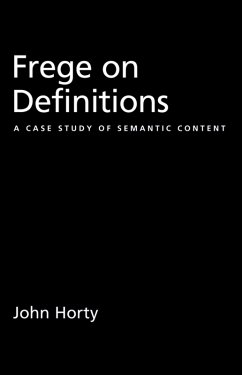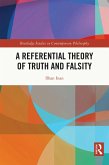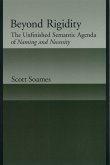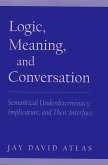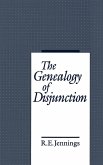In this short monograph, John Horty explores the difficulties presented for Gottlob Frege's semantic theory, as well as its modern descendents, by the treatment of defined expressions. The book begins by focusing on the psychological constraints governing Frege's notion of sense, or meaning, and argues that, given these constraints, even the treatment of simple stipulative definitions led Frege to important difficulties. Horty is able to suggest ways out of these difficulties that are both philosophically and logically plausible and Fregean in spirit. This discussion is then connected to a number of more familiar topics, such as indexicality and the discussion of concepts in recent theories of mind and language. In the latter part of the book, after introducing a simple semantic model of senses as procedures, Horty considers the problems that definitions present for Frege's idea that the sense of an expression should mirror its grammatical structure. The requirement can be satisfied, he argues, only if defined expressions--and incomplete expressions as well--are assigned senses of their own, rather than treated contextually. He then explores one way in which these senses might be reified within the procedural model, drawing on ideas from work in the semantics of computer programming languages. With its combination of technical semantics and history of philosophy, Horty's book tackles some of the hardest questions in the philosophy of language. It should interest philosophers, logicians, and linguists.
Dieser Download kann aus rechtlichen Gründen nur mit Rechnungsadresse in A, B, BG, CY, CZ, D, DK, EW, E, FIN, F, GR, HR, H, IRL, I, LT, L, LR, M, NL, PL, P, R, S, SLO, SK ausgeliefert werden.

